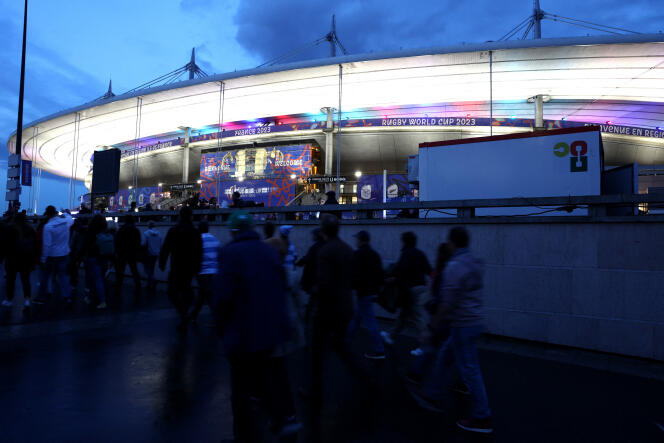There you go, it’s almost finished. “After seven incredible weeks, the final scene will open”, declared Michel Poussau, director of the 2023 Rugby World Cup, on Monday during a press conference taking stock of the tournament. An epilogue which will see South Africa and New Zealand face off on Saturday October 28 at the Stade de France. Co-owners of the number of world titles (three), the two flagship nations of the Southern Hemisphere are once again crossing swords for supremacy in world rugby.
In total, 48 matches – with the small final, Friday October 27, between England and Argentina – will have taken place from Saint-Denis (Seine-Saint-Denis) to Marseille, via Lyon, Lille, Nantes, Toulouse, Bordeaux, Nice and Saint-Etienne. The organizers are pleased to have welcomed 2.3 million spectators in the various World Cup venues, to which can be added 1.4 million people in the fan zones.
What “break all records” – sales of merchandising included – and competing “the most followed World Cup of all time”, greets Michel Poussau. Including on television, where audience records followed one another, according to the organizers (213 million cumulative viewers, before the last two matches).
“A new era about to dawn”
The 2023 World Cup was, in any case, not the closest competition. Once again, the gap between the best nations and the rest of the world was glaring. Seven matches ended with at least 70 points between one-day opponents, highlighting the gap between “the clowns on one side and the big owners on the other”, as Chile coach Pablo Lemoine said after his troops’ final setback against England (71-0). Among the small nations, many voices were raised to demand, outside of the World Cups, more clashes with the “Tier 1” nations (the top 10 in the world), which would allow the less seasoned nations to progress.
In response, world rugby has changed. During the final week of the competition in France, World Rugby (the international federation) announced the transition of the World Cup to 24 teams from the next edition, in 2027, in Australia, and the creation of a new competition during the periods usually dedicated to touring.
“ If we want to become a truly global sport, we need to create more relevance, opportunities and competitiveness to attract new fans.”insisted the president of the international body, Bill Beaumont, on Tuesday. ” A new era [est] about to open up for our sport, (…) which will benefit the greatest number, and no longer a minority. » The result of intense negotiation between the different actors, the reform of the world calendar is a ” compromise ” which largely preserves the territory of the flagship rugby nations, to the great dismay of many players from “small” nations, who expressed their disappointment.
You have 60% of this article left to read. The rest is reserved for subscribers.
